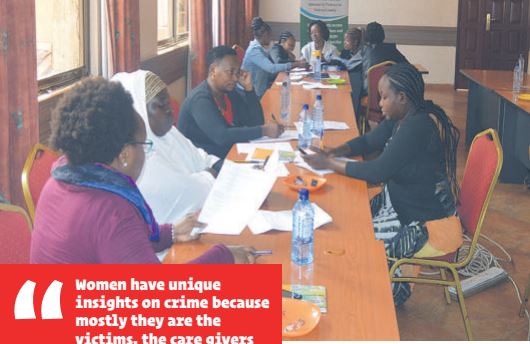
For ages, safety and security issues have been a preserve of men but a civil organization in Central Rift Valley has taken the unbeaten path to use women to fight crime at three slum areas in Nakuru and Naivasha towns.
The organisation that has been working in Kwa Rhonda and Kaptembwa slums in Nakuru and Karagita in Naivasha initiated a project dubbed Wamama na Usalama through which women were trained on monitoring crime patterns, reporting and referral mechanisms on Sexual and Gender Based Violence and human rights violations.